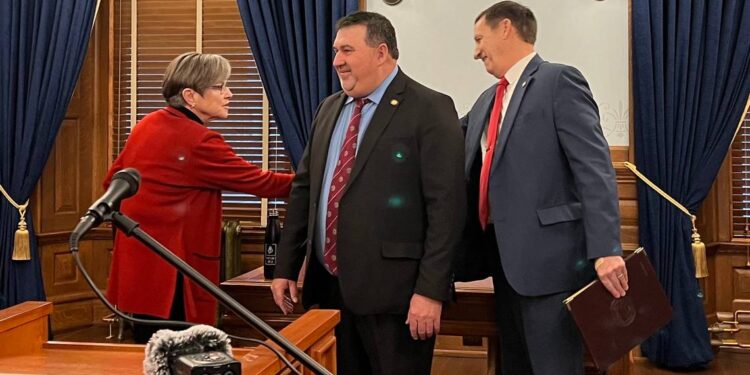After months of negotiations between parties and chambers, Kansas lawmakers have finally reached a compromise on a tax bill.
The Legislature is making its third attempt at comprehensive tax reform, following two previous unsuccessful efforts. The first attempt was thwarted when the governor vetoed the bill, while the second attempt passed the House but was ultimately defeated in the Senate. Republicans have been adamant about implementing a single-rate income tax, also known as a flat tax. However, Democratic Gov. Laura Kelly has made it clear that this is a non-negotiable issue for her.
Earlier proposals came very close to securing a majority that could override the governor’s veto. However, they fell just short of achieving this goal. The most recent bill, similar to the one passed by the House last month, has made a significant change by abandoning the idea of a single-rate tax. This change in approach has gained the support of the governor.
Governor Kelly expressed her view on the Conference Committee Report for House Bill 2036, acknowledging that it may not be an ideal tax plan. However, she emphasized that it does offer significant tax relief for all residents of Kansas. Governor Kelly further highlighted that the plan manages to achieve this while preserving the existing income tax structure and ensuring a financially sustainable future for the state. In conclusion, she affirmed her intention to sign this bipartisan compromise once it is presented to her.
The tax plan encompasses the following elements:
-
- The top tax bracket rate reduction from 5.7% to 5.5%.
- Increases the standard deduction to $5,000 for single filers, $7,500 for heads of household and $10,000 for joint filers.
- Eliminates sales tax on food starting July 1, rather than Jan. 1.
- Eliminates income tax on Social Security benefits.
- Exemption first $100,000 of property from statewide property taxes.
- Reduce statewide school finance mill levy from 20 to 19.5 mills.
- Reduce the banking privilege fee.
Members from both parties had to make compromises on their priorities in order to get a tax cut signed into law, even though the bill may not be perfect.
During the conference committee discussions on the bill, Rep. Tom Sawyer, a Democrat from Wichita, expressed his inclination towards not voting in favor of it.
“There’s a possibility that you’re not alone,” Sen. Caryn Tyson, R-Parker, responded.

